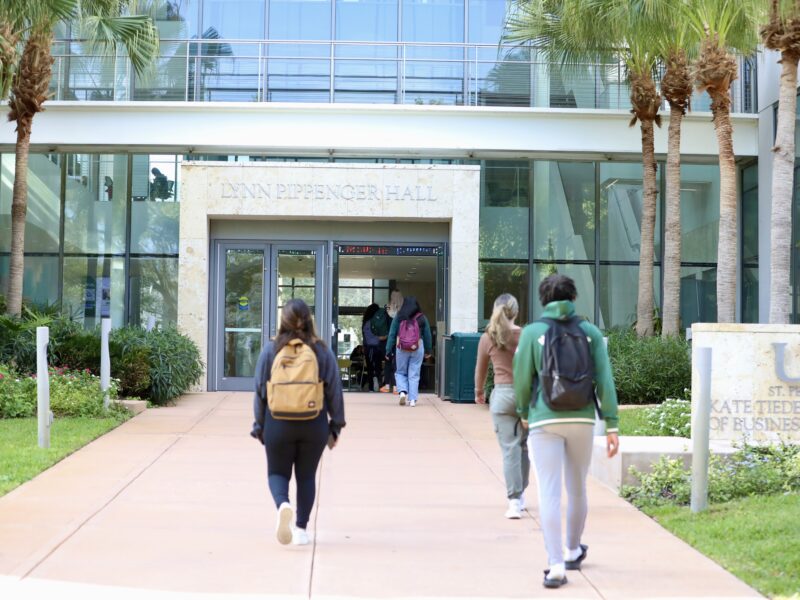Clubs waiting on funding for campus events and activities finally received confirmation during the last week of September. However, a lapse of communication has put stress on Senate relations.
SG started accepting club budgets at the beginning of August, with a cutoff date on Aug. 15, but Alex Moser, SG chief financial officer, said they did not exclude any clubs’ requests.
“We definitely got a huge overflow during the first and second week of classes, more than over the summer,” he said.
“Last year, everyone had worked together for three or four years,” said April Parsons, Senate president. “That definitely reflected in the Senate.”
With the “huge influx of new people” this school year, relationships and experience levels were not the same compared to the previous school year.
“We don’t have very many senior members. It’s like the entire organization switched leadership after four years,” Parsons said. “Experience is half of the knowledge and we didn’t have the experience they had.”
With new leadership, the view of the constitution and the statutes turned from an “intended” perspective to a more “literal” perspective.
“There was definitely a switch when the leadership switched, on how they viewed the statutes,” Parsons said.
Moser is in his second year in office. He saw the changes in the Senate over the summer and noticed a difficulty in communication. “They missed out on a lot of planning time,” he said.
“A little bit of that played into the chaos that happened this fall with the budget process,” he said.
In fall 2010, clubs were not as quick to submit budget requests, but an appropriations committee had already been created during the summer, and they were meeting.
Moser said there was “miscommunication and mistiming” between the Senate this past summer. Evan Garrett, the appropriations committee chair, resigned and at the time of Garrett’s resignation, “there was about a month time period where there was no chair,” Moser said.
The appropriations committee chair was not assigned until the second week of school.
“They had a lot to do in a short amount of time,” Moser said.
The Senate is supposed to meet biweekly during the summer, and with the chance for two meetings and time to name an appropriations chair before the fall semester began, Senate could not reach quorum—a specific number of senators present in order to vote—and therefore a chair could not be appointed.
Parsons said Moser slowly received the budgets over the summer and his plan was to hold them until he could “give them to the Senate all at once.”
“All the budgets I had received, I couldn’t pass to the chair, because there was no chair,” Moser said.
Parsons was hesitant to make any major decisions without communicating with Cory Hebert, then-Senate president, who was out of town for the summer. She was the acting Senate president while he was away. The lack of communication made it difficult for the Senate to even hold a meeting.
“It was hard because it was his position I was holding,” Parsons said.
Parsons said she and Hebert should have done the general assembly meeting agendas together on a weekly basis.
Aside from the slow start to allocate funding to clubs, an issue with the process Senate was following was not correct according to the statutes.
Last year, the SG leadership changed the statutes to a new process.
Moser said it was brought to his attention by one of his assistants. It was brought to the attention of the Senate, which happened right after the majority of the club budgets had passed.
“We were not going to let the current process continue on, knowing it was not the proper way,” Moser said.
Parsons said the Senate passed the majority of the budgets and were blindsided at the next week’s meeting, the sixth week of school.
“The CFO gave us bills that nobody had seen before, five minutes before the meeting started,” she said.
But it’s not the reason why things were held up.
“We wanted budgets to be submitted in bill form, so it was clear when [Courtney Parrish, the SG President] was passing or vetoing budgets. That’s how it reads it the statutes,” Moser said.
He wants to put the process back to the way it used to be, where Senate doesn’t see club budgets, because as of now, there is no club budget process, he said.
“Clubs would receive their funding through a budget committee made up of the CFO and a collective body of students who had no affiliation with SG whatsoever,” Moser said.
The only budget Senate used to see was the yearly $1.5 million that funds everyone.
Parsons agreed and said that reviewing club budgets and the entire A&S fees budget “isn’t the same thing.”
When the statutes were changed in 2009-2010 academic year, the new process came about.
“I believe that it needs to be a process that clubs receive their funding in a timely manner and not be scrutinized on the events or activities they want to partake in,” Moser said.
He also thinks Senate should not deal with club budgets.
“I don’t think the Senate should have a say in what events or what projects they do, as long as the funds are being spent appropriately, according to state and university policies and that there is students support behind it,” Moser said. “A&S are accumulated from all students and the fees should benefit as many students as possible.”
Parsons said the Senate is taking “active steps to fix the shortcomings.”
Photo illustration by Wendy Biddlecombe and Daniel Mutter



